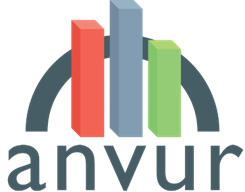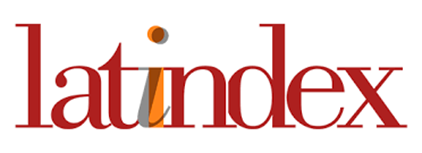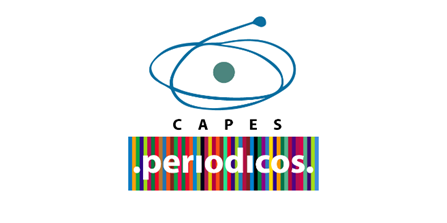GENERAL DATA PROTECTION LAW AND THE REVIEW OF AUTOMATED DECISIONS: THE REGULATION MECHANISMS BASED ON AN ETHICAL ARTIFICIAL INTELLIGENC
DOI:
https://doi.org/10.14210/rdp.v17n2.p509-546Keywords:
General Data Protection Law. Automated decision-making systems. Oversight Board. AI Regulation.Abstract
Contextualization: This paper discusses how the LGPD can be a prerogative for regulation in artificial intelligence, through accountability mechanisms that include ethics-based audits, Oversight Board, and industry self-regulation, after a risk assessment to define the scope of the enterprise and the nature of the data processing.
Objectives: This article aims to analyze proposals for regulation on automated decision-making systems, based on the regulation provided in the General Data Protection Law (LGPD) for requests on review of automated decisions. Artificial intelligence systems have layers of opacity, especially those that make decisions without the interference of humans. In some systems, it is not possible to provide absolute precision about the paths that the algorithm takes for a given decision. The LGPD has provided the possibility to individuals require a right to explanation about these fully automated decisions.
Methodology: It consists of a research whose methodology was elaborated is a bibliographic review based on the deductive method.
Result: It is suggested that Oversight Boards are ideal independent organizations for automated systems that pose a high risk of rights violations or inappropriate decision patterns. For other levels of risk, it is suggested that industry self-regulation may be used for a combination of accountability, ethics, and cost-benefit split between companies.
Downloads
References
BIONI, B. Proteção de dados pessoais: a função e os limites do consentimento. Rio de Janeiro: Forense, 2019.
BIONI, B.; LUCIANO, M. O princípio da precaução na regulação de Inteligência Artificial: seriam as leis de proteção de dados o seu portal de entrada? In: FRAZÃO, A.; MULHOLLAND, C. (coords.) Inteligência artificial e direito: ética, regulação e responsabilidade. [livro eletrônico] 2ª ed, rev, São Paulo: Thomson Reuters Brasil, 2020.
BRASIL. Lei nº 13.709, de agosto de 2018. Disponível em: http://www.planalto.gov.br/ccivil_03/_ato2015-2018/2018/lei/L13709.htm Acesso em: 03 maio 2022.
BROWN, S.; DAVIDOVIC, J.; HASAN, A. The algorithm audit: Scoring the algorithms that score us. Big Data & Society, v. 8, n. 1, p. 205395172098386, jan. 2021. Disponível em: https://doi.org/10.1177/2053951720983865. Acesso em: 3 set 2022. DOI: https://doi.org/10.1177/2053951720983865
BURRELL, J. How the machine ‘thinks’: Understanding opacity in machine learning algorithms. Big Data & Society, v. 3, n. 1, p. 205395171562251, 5 jan. 2016. Disponível em: https://doi.org/10.1177/2053951715622512. Acesso em: 3 maio 2022. DOI: https://doi.org/10.1177/2053951715622512
CAMPISI, N. From Inherent Racial Bias to Inocrrect Data - The Problema With Current Credit Scoring Models. Forbes, 26 fev 2021. Disponível em: https://www.forbes.com/advisor/credit-cards/from-inherent-racial-bias-to-incorrect-data-the-problems-with-current-credit-scoring-models/ Acesso em: 03 set 2022.
DONEDA, D. Da privacidade à proteção de dados pessoais: elementos da formação da Lei Geral de Proteção de Dados. [livro eletrônico] 2ª ed, São Paulo: Thomson Reuters Brasil, 2020.
FLORIDI, L; COWLS, J. A Unified Framework of Five Principles for AI in Society. Issue 1, 23 jun. 2019. Disponível em: https://doi.org/10.1162/99608f92.8cd550d1. Acesso em: 3 maio 2022. DOI: https://doi.org/10.1162/99608f92.8cd550d1
FLORIDI, L.; TADDEO, M. What is data ethics? Philosophical Transactions of the Royal Society A: Mathematical, Physical and Engineering Sciences, v. 374, n. 2083, p. 20160360, 28 dez. 2016. Disponível em: https://doi.org/10.1098/rsta.2016.0360. Acesso em: 3 set 2022. DOI: https://doi.org/10.1098/rsta.2016.0360
FRAZÃO, A. Decisões algorítmicas e direito à explicação. Jota, 24 nov. 2021. Disponível em: https://www.jota.info/opiniao-e-analise/colunas/constituicao-empresa-e-mercado/decisoes-algoritmicas-e-direito-a-explicacao-24112021 Acesso em: 28 ago 2022.
GUTIERREZ, A. É possível confiar em um sistema de Inteligência Artificial? Práticas em torno da melhoria da sua confiança, segurança e evidências de Accountability. In: FRAZÃO, A.; MULHOLLAND, C. (coords.) Inteligência artificial e direito: ética, regulação e responsabilidade. [livro eletrônico] 2ª ed, rev, São Paulo: Thomson Reuters Brasil, 2020.
HARTMANN, I.A. et al. Policy Paper Regulação de Inteligência Artificial no Brasil. FGV Direito Rio, 2020. Disponível em: https://bibliotecadigital.fgv.br/dspace/bitstream/handle/10438/30078/PolicyPaperIAeGoverno.pdf?sequence=1&isAllowed=y Acesso em 03 set. 2022.
LEMOS, R. O Oversight Board do Facebook. ITS Rio, 12 mai 2020. Disponível em: https://itsrio.org/pt/artigos/o-oversight-board-do-facebook/ Acesso em: 03 set 2022.
LESSIG, L. Code version 2.0. New York: Basic Books, 2006.
MÖKANDER, J. et al. Ethics-Based Auditing of Automated Decision-Making Systems: Nature, Scope, and Limitations. Science and Engineering Ethics, v. 27, n. 4, 6 jul. 2021. Disponível em: https://doi.org/10.1007/s11948-021-00319-4. Acesso em: 3 set 2022. DOI: https://doi.org/10.1007/s11948-021-00319-4
MÖKANDER, J.; FLORIDI, L. Ethics-Based Auditing to Develop Trustworthy AI. Minds and Machines, v. 31, n. 2, p. 323-327, 19 fev. 2021. Disponível em: https://doi.org/10.1007/s11023-021-09557-8. Acesso em: 3 set 2022. DOI: https://doi.org/10.1007/s11023-021-09557-8
MORLEY, J et al. Operationalising AI ethics: barriers, enablers and next steps. AI & SOCIETY, 15 nov. 2021. Disponível em: https://doi.org/10.1007/s00146-021-01308-8. Acesso em: 3 set 2022. DOI: https://doi.org/10.1007/s00146-021-01308-8
PASQUALE, Frank. Black box society: The secret algorithms that control money and information. [S. l.: s. n.], 2016. 311 p. ISBN 9780674970847. DOI: https://doi.org/10.4159/harvard.9780674736061
RAJI, I.D. et al. Closing the AI accountability gap. In: FAT* '20: CONFERENCE ON
FAIRNESS, ACCOUNTABILITY, AND TRANSPARENCY, Barcelona Spain. FAT* '20: Conference on Fairness, Accountability, and Transparency. New York, NY, USA: ACM, 2020. Disponível em: https://doi.org/10.1145/3351095.3372873. Acesso em: 3 set 2022. DOI: https://doi.org/10.1145/3351095.3372873
SCHERER, M.U. Regulating Artificial Intelligence Systems: Risks, Challenges, Competencies, and Strategies. Harvard Jounal of Law & Technlogy, v. 29, n. 2, Spring 2016. DOI: https://doi.org/10.2139/ssrn.2609777
VEGA, I.S. Inteligência artificial e tomada de decisão - a necessidade de agentes externos. In: FRAZÃO, A.; MULHOLLAND, C. (coords.) Inteligência artificial e direito: ética, regulação e responsabilidade. [livro eletrônico] 2ª ed, rev, São Paulo: Thomson Reuters Brasil, 2020.
WORLD ECONOMIC FORUM. AI Governance A holistic Approach to Implement Ethics into AI. Switzerland, 2019. Disponível em: https://weforum.my.salesforce.com/sfc/p/#b0000000GycE/a/0X000000cPl1/i.8ZWL2HIR_kAnvckyqVA.nVVgrWIS4LCM1ueGy.gBc Acesso em: 02 set. 2022.
Downloads
Published
How to Cite
Issue
Section
License
Na qualidade de autor(es) da colaboração, original e inédita, sobre o qual me(nos) responsabilizo(amos) civil e penalmente pelo seu conteúdo, após ter lido as diretrizes para autores, concordado(amos) com o Regulamento da Revista Eletrônica Direito e Política e autorizo(amos) a publicação na rede mundial de computadores (Internet), permitindo, também, que sua linguagem possa ser reformulada, caso seja necessário, sem que me(nos) seja devido qualquer pagamento a título de direitos autorais, podendo qualquer interessado acessá-lo e/ou reproduzi-lo mediante download, desde que obedeçam os Direitos Autorais.

















